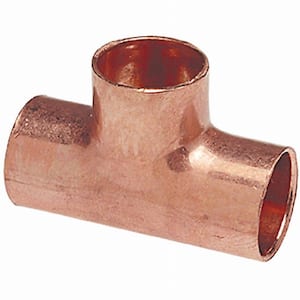Just How Copper Products Add To Sustainable Practices in Various Markets
Copper products are increasingly identified for their substantial payments to sustainable methods across several sectors, driven by their integral residential properties such as recyclability, sturdiness, and performance. In eco-friendly energy systems, for instance, copper improves the capability of solar and wind innovations, while its application in building reduces waste via durability. The material's antimicrobial qualities offer encouraging advantages in health care settings. As industries seek to embrace even more sustainable techniques, the role of copper might prove pivotal in attaining environmental objectives. What ramifications might this have for future technologies in sustainability?
Copper in Renewable Energy
Copper plays a crucial function in the development of eco-friendly energy modern technologies, functioning as a crucial conductor in various applications. Its extraordinary electric conductivity and resistance to deterioration make it a suitable material for electric circuitry, which is essential in photovoltaic panels, wind turbines, and power storage space systems. In solar photovoltaic systems, copper is made use of in the interconnections and circuitry, allowing efficient power conversion from sunlight to electrical energy.
In wind energy, copper is indispensable to the generators and transformers that convert kinetic power right into electric power, ensuring optimal efficiency and dependability. Furthermore, the need for electrical cars (EVs) is boosting, with copper being a crucial part in batteries, motors, and charging facilities. The shift to EVs substantially improves the demand for copper, as these lorries normally use four times a lot more copper than standard inner combustion engine cars.
As the globe seeks to alleviate climate adjustment and change to lasting energy sources, copper's function comes to be significantly crucial. The material not only improves the efficiency and sturdiness of sustainable power systems yet also sustains the wider objective of reducing greenhouse gas emissions and promoting a lasting future.
Eco-Friendly Building Products
In the last few years, there has been a notable shift towards the fostering of eco-friendly building products in feedback to growing environmental worries. This modification is motivated by the need for lasting choices that lessen environmental footprints while keeping structural integrity and aesthetic allure.
Copper, understood for its sturdiness and recyclability, has emerged as a key gamer in this industry. It can be used in roof covering, pipes, and electric systems, adding to energy effectiveness and minimizing waste. Copper's durability indicates less replacements with time, further boosting its sustainability account.
Furthermore, products such as bamboo, reclaimed timber, and recycled steel are gaining appeal. These alternatives not just supply decreased environmental influence yet likewise advertise resource conservation. As developing codes progressively highlight sustainability, contractors and designers are integrating these materials right into their tasks, fostering advancement in layout.
The raising adoption of eco-friendly building and construction products mirrors a broader commitment to sustainability in the built environment. By focusing on these products, the building market can dramatically lower its carbon footprint, line up with regulative requirements, and support a healthier ecosystem for future generations. This fad notes an essential action in the direction of an extra lasting future in building.
Copper's Function in Healthcare
Recent studies have highlighted the significant duty of copper in health care setups, specifically as a result of its antimicrobial properties. Copper surface areas have been shown to reduce the visibility of virus, consisting of infections and germs, by approximately 99.9% within a short period. This exceptional efficiency makes copper an invaluable product for high-touch surface areas in health centers, such as doorknobs, bed rails, and IV poles, therefore adding to improved infection control steps.
Along with its direct antimicrobial results, copper also plays a role in the broader context of hospital sustainability (Copper Products). By incorporating website here copper into medical equipment and home furnishings, healthcare facilities can lower the incidence of healthcare-associated infections (HAIs), which not just enhances patient outcomes but also lowers the costs connected with extended healthcare facility remains and additional treatments
Moreover, copper's longevity and recyclability align with sustainable practices, enabling liable source administration. As health care systems increasingly focus on both person security and ecological stewardship, the integration of copper products is coming to be a lot more common. This dual advantage emphasizes copper's important payment to a much healthier, much safer, and extra lasting healthcare setting.
Sustainability in Transportation

Moreover, copper's durability and rust resistance add to the durability of transportation framework (Copper Products). In rail systems, as an example, copper parts boost the dependability and efficiency of signaling and power systems, vital for reducing delays and power intake. In addition, copper's duty in renewable resource systems, such as solar and wind, sustains lasting transportation solutions by providing clean energy for electric transit choices
Investments in copper modern technology not just foster sustainability but also promote financial development and work production in green industries. As markets make every effort to fulfill stringent ecological regulations, the application of copper products in transportation emerges as a critical technique in accomplishing sustainability objectives and promoting a cleaner, much more effective future.
Copper and Round Economic Climate
As the globe significantly embraces sustainability, the function of copper in the circular economy becomes ever a lot more considerable. Copper's inherent residential or commercial properties-- such as its toughness, conductivity, and recyclability-- setting it as an essential material in a resource-efficient economic situation. The round economic situation aims to decrease waste and make the most of resource use through recycling and redirected here reusing products, and copper excels in this regard.
The metal can be reused forever without loss of quality, making it an ideal prospect for lasting methods throughout various fields, consisting of building, electronics, and renewable resource. By recovering and reprocessing copper from end-of-life items, markets can considerably minimize the need for virgin products, consequently reducing ecological impacts related to mining and processing.
Moreover, the assimilation of copper into round economic climate frameworks not just saves sources but additionally promotes innovation. Businesses that prioritize copper reusing contribute to an extra sustainable supply chain, enhancing their competition while lining up with governing demands and customer preferences for environmentally accountable products.
Final Thought
To conclude, copper products dramatically add to lasting practices throughout numerous industries. Their crucial function in enhancing renewable resource technologies, advertising environment-friendly construction products, supporting infection control in medical care, promoting lasting transportation, and symbolizing the principles of a circular economy highlights the flexibility and value of copper. By incorporating copper into various applications, markets can accomplish greater effectiveness, decrease ecological influence, and align with global sustainability goals, inevitably fostering a much more lasting future.

Copper's superb conductivity makes it a favored material in electrical lorry (EV) systems, improving energy performance and performance. Furthermore, copper's role in eco-friendly power systems, such as solar and wind, supports sustainable transport options by giving tidy power for electric transit alternatives.
Their necessary function in improving renewable energy innovations, promoting green construction products, sustaining infection control in healthcare, promoting sustainable transport, and symbolizing the concepts of a round economy underscores the versatility and relevance of copper.